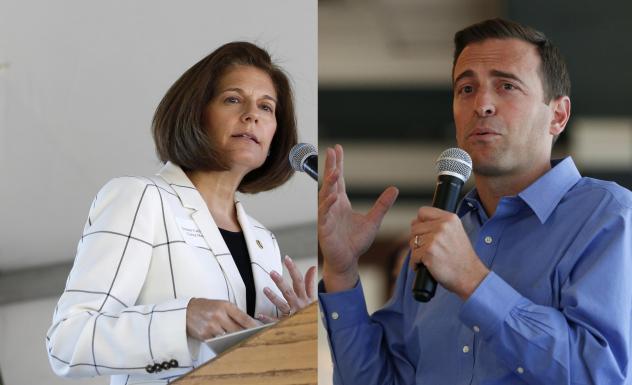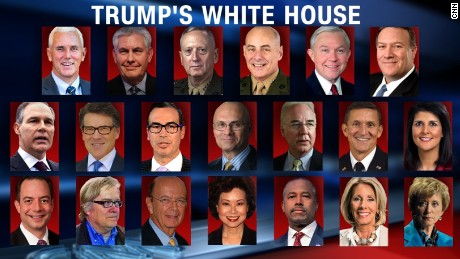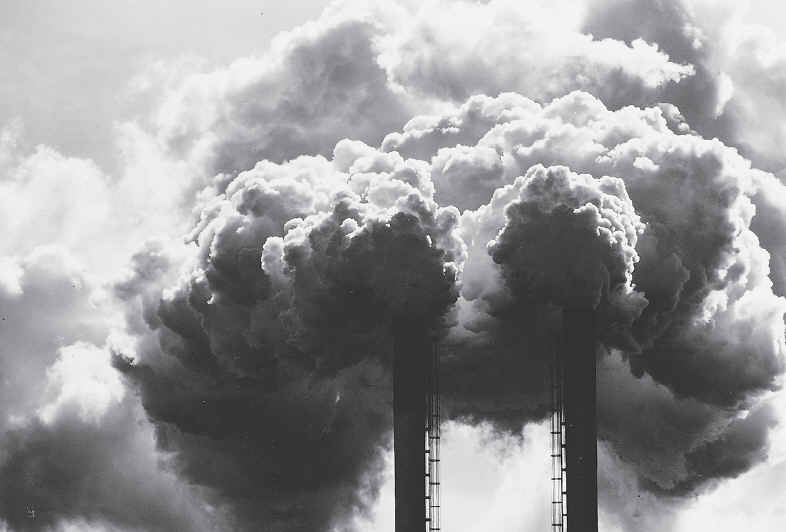Region: National
Senate 2022: Georgia
The environmentalist incumbent faces a tight race.
Georgia is a toss-up state that both parties view as a must-win. I suppose it says something that both candidates for the Georgia Senate are Black, which may be a first for a Southern state, or perhaps anywhere. GOP insiders are reportedly concerned about their candidate’s ability to mount a successful challenge to the incumbent. …
Continue reading “Senate 2022: Georgia”
CONTINUE READINGSenate 2022: Nevada.
A tight race between two low-key candidates.
The Nevada Senate race may be more about Biden and Trump than the actual candidates. It’s another toss-up contest, though some observers see signs it may be shifting in favor of the Democrats. Catherine Cortez Masto (D). Cortez Masto’s campaign website calls her “an independent voice for Nevada who works with Democrats, Republicans, and Independents …
Continue reading “Senate 2022: Nevada.”
CONTINUE READINGCost-Benefit Analysis and Deep Uncertainty
How should agencies take into account “the things we know we don’t know”?
Since 1981, cost-benefit analysis (CBA) has been at the core of the rule making process. OIRA, the so-called “regulatory czar” in the White House, must approve every significant regulation based on a review of its CBA. But CBA has had a major blind spot. It embodies techniques for analyzing possible harmful outcomes when the probability …
Continue reading “Cost-Benefit Analysis and Deep Uncertainty”
CONTINUE READINGWhere Are They Now?
Remember Trump’s appointees — Pruitt, Zinke, and the rest? Here’s where they went afterwards.
Trump’s environmental appointees were a motley crew, many lacking in relevant expertise; others with shaky ethical standards. While in office, they were daily sources of torment for environmentalists. Where are they now? For most, being in the cabinet has been a stepping stone to nowhere. Here’s the Trump crew and their last known whereabouts. David …
Continue reading “Where Are They Now?”
CONTINUE READINGSenate 2022: Arizona
In a tight race, the incumbent faces a pro-drilling, pro-fracking, pro-nuclear advocate.
Arizona was considered a toss-up state in the battle for control of the Senate. There are signs that the race may be shifting a little in the direction of the Democrats, but the extent of any shift remains unclear. The challenger touts his MAGA credentials, while the incumbent is quietly pro-environmental. Mark Kelly (D). Kelly, …
Continue reading “Senate 2022: Arizona”
CONTINUE READINGAnimal Cruelty and Interstate Commerce
A sleeper Supreme Court case could impact state climate legislation.
A month from now, the Supreme Court will hear a case about an animal cruelty law. It’s not an environmental law case, but the ruling could impact the authority of states to address climate change. Odds are that its impact will be limited, but you can never be sure of what five Justices might decide …
Continue reading “Animal Cruelty and Interstate Commerce”
CONTINUE READINGTwo Months from Election Day
Who will get control of the Senate? And why does that matter for the environment?
We’re now two months from election day. This is a challenging electoral cycle for the Democrats, given inflation, the continuing effects of COVID, the economic impact of the war in Ukraine, and other woes. With turnout possibly boosted by the overruling of Roe v. Wade and other developments, Democrats do have a good chance of …
Continue reading “Two Months from Election Day”
CONTINUE READINGClimate Policy: What’s Happening at the State Level?
Important developments in late summer, some impacting multiple states.
States have played a critical role in U.S. climate policy. The federal government is now supporting that role with federal funding for states. In the meantime, a number of states have moved a step further in plans to phase out gas and diesel vehicles. Two key states have ramped up their plans for carbon neutrality, …
Continue reading “Climate Policy: What’s Happening at the State Level?”
CONTINUE READINGJobs and Environmental Regulation
“Job-killing regulation”? That’s not really what the evidence tells us.
Labor Day is a good time to talk about an important topic: the impact of environmental regulation on jobs. This is a clearly a fraught issue. In support of his deregulation campaign, President Trump promised to “cancel every needless job-killing regulation and put a moratorium on new regulations until our economy gets back on its …
Continue reading “Jobs and Environmental Regulation”
CONTINUE READINGA Design Flaw in the Clean Air Act
Why have technology-based standards if you have air quality standards?
The Clean Air Act has two kinds of standards. It sounds like having two kinds of standards should improve air quality more than a single standard. But in reality, one type of standard can result in canceling out the benefits of the other type. If you understand the statute, this is actually pretty obvious once …
Continue reading “A Design Flaw in the Clean Air Act”
CONTINUE READING












